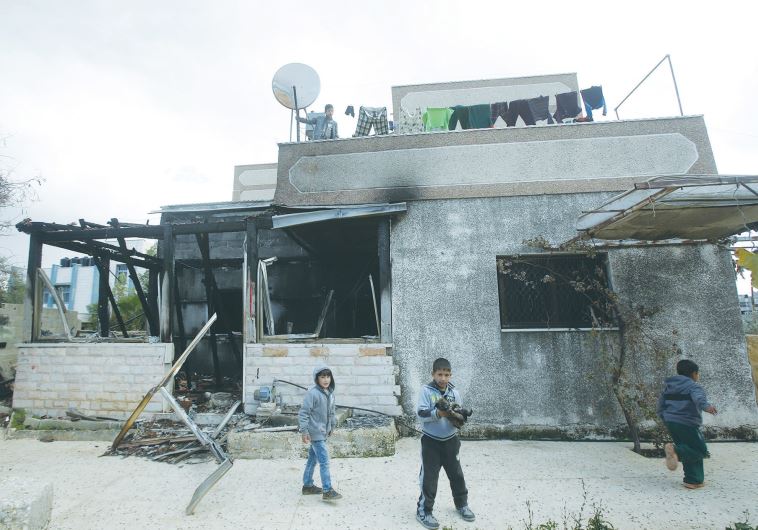Settlers protest Shin Bet’s treatment of Jewish suspect in Duma attack
Rabbi Ohad Krakover: Grave acts can be carried out by law enforcement against ordinary citizens.
 Palestinian children play in the yard of the Dawabsha family home in Duma in December, 2015
Palestinian children play in the yard of the Dawabsha family home in Duma in December, 2015